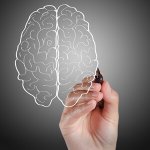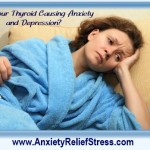Anxiety and panic attacks are very common psychological conditions that can happen to people, regardless of the age, gender, race or lifestyle. Most cases are found to be a direct manifestation of depression or some other underlying psychiatric disorder. However, there are also many other possible factors that can trigger these attacks. In order to stop them completely, it is imperative that you get professional medical help in order to find out what exactly is causing your to have these meltdowns.
There are dozens of possible reasons for anxiety and panic attacks, but depression does top the list. To find out if this is what you are suffering from, you can start by answering the following questions: Do you feel sad all the time for no apparent reason? Are you lacking in energy even for activities that you usually find interesting? Have you been isolating yourself from your friends and family? Do you feel exhausted all the time, even upon waking up in the morning? If you answered yes to at least one of these questions, then it is highly possible that you are suffering from depression and that this is indeed the cause for your sporadic panic attacks.
How Anxiety and Panic Attacks Can Cause Depression
As we have just seen, anxiety and panic attacks normally result from depression but the opposite may also be true. In other words, it is possible for you to experience depression due to frequent anxiety or panic attacks. For instance, let’s say you have a fear of heights. Every time you find yourself in a situation where you will be suspended above the ground, such as jumping from the diving board in the pool or getting into an airplane, you feel extreme panic to the point that you find it hard to breathe or you break out in cold sweat. Needless to say, you will do everything you can to stay away from such situations. Now, if you were suddenly offered that job position that you have always wanted but you find out that it would require frequent flying to different places, it is very likely that you will feel depressed about the whole situation.
This is just one example but there are many other cases where anxiety or panic attacks can actually cause depression and vice versa. In fact, it can often be pretty confusing at times to determine which causes which. For this reason, the best thing to do is to see a doctor the moment you experience symptoms of a psychiatric condition and undergo the necessary treatment as soon as possible.


















Speak Your Mind